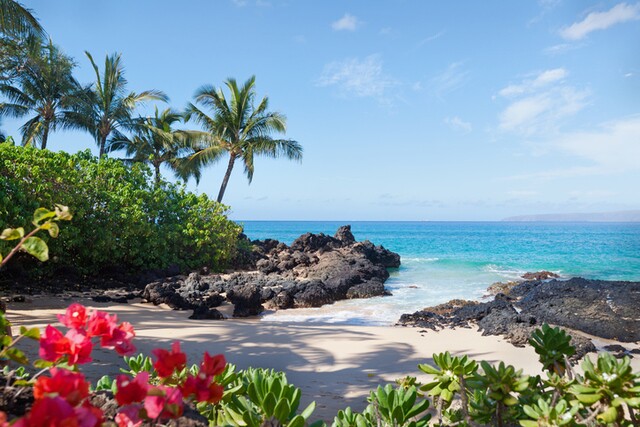Gallup recently released an article with the headline, “Hawaii Leads U.S. States in Well-Being for Record Sixth Time.” What are the secrets to Hawaii’s happiness, enjoyment, and well-being? I served as a full-time missionary in Hawaii and have spent years researching their culture for my new book, The Way of Aloha: Lanai.
As a missionary, I quickly learned that Hawaii has a unique way of life and a unique way of thinking. Paradise is not a location. It is a way of life. The secrets to happiness are not dependent on where you live, but on how you live. A life of joy and peace can be experienced by anyone, anywhere, by adhering to the beliefs, attitudes, and actions that make it so.
To understand why Hawaii consistently ranks as the least stressed and happiest place in America, you need to understand these five principles of aloha: pūliki, ‘aka, aloha ‘aina, napo‘o ‘ana o ka lā, and ohana.
1. Pūliki. Pūliki is the Hawaiian word for "embrace." Hugs are the Hawaiian handshake, but a Hawaiian hug is much more than a greeting. It is an expression of love, trust, hospitality, and family. A Hawaiian hug creates a connection, emotion, and message that a handshake or words cannot duplicate. No technology will ever replace or match the uniting power of a hug. The affirming and welcoming sensations of an embrace warm the heart, lift the spirit, and heal the body.
2. ‘Aka. ‘Aka (laughter) is a very important part of Hawaiian life. Hawaiians understand that laughter is one of the greatest emotions and is a pure form of communication with God. Life should be filled with laughter. The ancient Hawaiian word for laughter means to lift and expand. Laughter lifts your spirit and heals your body. Laughter expands your ability to connect with God and feel His presence. You fulfill the measure of your creation when your life is filled with joy. God is pleased when He sees you laughing, as laughter is evidence that you are happy.
3. Aloha ‘Aina. The literal translation of aloha ‘aina is “love of the land,” but as with all Hawaiian words, the definition cannot be captured with a few words of translation. The phrase aloha ‘aina is a connection with God and His creations. Nature is a great gift from our Creator and is much more than physical objects. ‘Aina is filled with mana (spiritual power), spirit, and breath (life). ‘Aina is sacred and nourishes our body and spirit. We need to partake in nature as much as we need food and water.
You do not have to live on an island paradise to connect with nature. The David Suzuki Foundation challenged more than 10,000 participants to get out into nature for 30 minutes a day for 30 consecutive days. The foundation released the result of their study saying, “We found that participants in the 30×30 Nature Challenge almost doubled their time spent outside during the month and reduced their screen time by about 4.5 hours per week. They reported significant increases in their sense of well-being, feeling more vitality and energy, while feelings of stress, negativity, and sleep disturbances were all reduced.”
Many of our physical troubles and stresses are caused by a lack of aloha ‘aina. What is often diagnosed as a disorder is just a symptom of nature deficiency. The treatment that is needed is not a pill, but more time connecting with nature.
4. Napo‘o ‘ana o ka lā. While in Hawaii, it is fun to see people gather each night and watch the setting of the sun in silence. Each sunset is an opportunity to watch God as He paints on His heavenly canvas and is a clear reminder of the immensity of God’s power, creations, and grace. Watching the sunset helps us connect with God and helps us hear God speaking to us.
The psalm, “Be still and know that I am God” contains a command with a promise. The command is to be still. The promise is that you will know God. In a world filled with noise, clutter, and chaos, it is important to take time to be still and know God. To increase your well-being, pause each evening for a moment of silence while you watch the sunset.
5. Ohana. Ohana (family) comes from the highly reverenced word ‘ohā. ‘Ohā is a word for the ancient taro root from which all taro has sprung. The taro plant was a staple of life to the ancient Hawaiians and was a main source of food and medicine. The word ohana signifies that all people come from the same root—God. No matter how many offshoots come from the ‘ohā, they all come from the original root. Since Hawaiians know we are one big family of God, they use the terms auntie, uncle, and cousin with everyone.
One of the first things I noticed when I arrived in Hawaii as a full-time missionary was how friendly all the drivers were. It was a culture shock—in a good way. I asked one of the Church leaders why the drivers were so friendly. The Church leader replied, “If your mom cut you off in traffic, would you honk your horn at her?”
“Of course not,” I answered with a laugh.
He continued, “Honking or being mean to a fellow driver is like honking at or being mean to your mother. In Hawaii, we are all family. When you view everyone as your ohana, you act differently.”
There are dozens of additional stories and aloha principles in the new book The Way of Aloha: Lanai. The book is available at AVOW, Deseret Book, Seagull Book, and Amazon.

